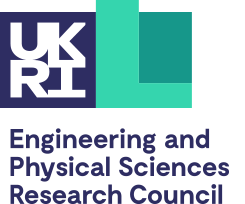£4,986,240
Centre for Intelligent Transport
Funded Research Projects
The following are current funded research projects taking place within the research centre:
Life-like Resilient Materials for Mitigating Liquid-Solid Impact Damage (LSIMPACT)Principal Investigator: Wei TAN Funding source: EPSRC - EU Scheme Start: 01-04-2024 / End: 31-03-2029 Amount: £1,270,404 How can high-velocity liquid cause major damage to solid materials, such as erosion of wind blades? LSIMPACT embarks on a journey to not just understanding the failure mechanisms of solid materials under liquid impact, but also to create new materials with ‘life-like’ features. The team will develop materials that can heal themselves, adapt, and endure — greatly enhancing the lifetime of engineering structures,** |
Aeroacoustics of Dynamic StallPrincipal Investigator: Sergey KARABASOV Co-investigator(s): Eldad AVITAL Funding source: EPSRC Engineering and Physical Sciences Research Council Start: 01-09-2023 / End: 28-02-2027 Amount: £487,827 |
Data-Driven Surrogate Modelling for Liquid Ammonia Direct Injection Spray CharacteristicsPrincipal Investigator: Amin PAYKANI Funding source: Royal Society Start: 31-03-2024 / End: 28-02-2027 Amount: £225,000 In this project, we are proposing a direct research and partnership building between QMUL with Kyushu University with the aim of developing data-efficient ML models for the prediction of liquid ammonia DI spray characteristics to tackle the computational and experimental costs and time. |
PALPABLE: Multi-sensing tool for Minimally Invasive SurgeryPrincipal Investigator: Kaspar ALTHOEFER Funding source: EPSRC - EU Scheme Start: 01-01-2023 / End: 31-12-2026 Amount: £566,718 |
The Architecture of PhotosynthesisPrincipal Investigator: Haibao LIU Funding source: Human Frontier Science Program (HFSP) Start: 01-05-2024 / End: 30-09-2026 Amount: £13,846 Leaf structure, like a sandwich structure, has stiff upper and lower epidermal layers (face sheets) surrounding mesophyll tissue with veins (soft core). Computational models will be developed to fit diverse leaf architectures across plant species, aiming for accurately predicting the effects of mesophyll anatomical features on overall leaf stability. |
iCASE Award Industrial Contribution (NDA) - Eversion robots for radiologically constrained environments characterisation and decommissioningPrincipal Investigator: Kaspar ALTHOEFER Funding source: Dounreay Site Restoration Ltd Start: 19-09-2022 / End: 18-09-2026 Amount: £29,628 |
iCASE Award Industrial Contribution (Airbus) Rich Simulation Driven Design OptimisationPrincipal Investigator: Vassili TOROPOV Co-investigator(s): Funding source: Airbus Defence & Space Ltd Start: 12-09-2022 / End: 11-09-2026 Amount: £37,428 |
Integrated Human-Augmented Robotics and Intelligent Sensing Platform for Precision ViticulturePrincipal Investigator: Ketao ZHANG Co-investigator(s): Lei SU Funding source: Innovate UK Start: 01-09-2023 / End: 31-08-2026 Amount: £297,599 This project aims to revolutionize the way high-value horticultural crops such as grapes, berries, and other fruits are grown by developing and implementing a precision farming ecosystem. |
DISTOPIA - Distorting the Aerospace Manufacturing Boundaries: Operational Integration of Autonomy on Titanium (TS/Y016548/1)Principal Investigator: Chinnapat PANWISAWAS Co-investigator(s): Harry BHADESHIA Funding source: Innovate UK Start: 01-02-2024 / End: 31-07-2026 Amount: £120,000 Innovate UK - Eureka collaborative R&D: smart advanced manufacturing Cluster (Project number 10086469) |
HyPStore (Accelerating low-carbon Hydrogen Production and Safe storage for utilisation in mobility) UK-Australia Renewable Hydrogen Innovation PartnershipPrincipal Investigator: Tao LIU Funding source: Innovate UK Start: 01-07-2024 / End: 31-03-2026 Amount: £128,750 The project aims to develop self-healing solution for Type V all composite hydrogen storage tanks. |
Solar-powered VTOL UAS-based Intelligent Sensing/Monitoring Applications of Precision Agriculture (S&E Industry Studentship Model)Principal Investigator: Hasan SHAHEED Funding source: Uavictor Aerospace Ltd Start: 01-02-2023 / End: 31-01-2026 Amount: £72,964 |
Nonlinear mechanics of rods subject to surface constraintsPrincipal Investigator: Rehan SHAH Funding source: Quaterly Journal of Mechanics and Applied Mathematics Fund (QJMAM) Start: 16-10-2024 / End: 16-10-2025 Amount: £1,700 Slender, elastic rod-like structures on or inside constrained rigid surfaces are prevalent in a wide range of engineering (drill strings in borewells, pipelines under the seabed, ocean cables), medical (stents in angioplasty of arteries), biological (DNA toroidal condensates, bacterial flagella), electronic (carbon nanotubes) and robotic (soft robots for in-pipe inspection) applications. This project seeks to employ a comprehensive variational theory of elastic two-strand braids to investigate the post-buckling behaviour of elastic rods lying on rigid tubular surfaces. Methods comprising the calculus of variations and Lagrangian and Hamiltonian mechanics are utilised to procure more general types of solutions to various nonlinear boundary value problems, using both analytical and numerical approaches. Journal Paper Publications: Shah R and van der Heijden GHM (2024). Buckling and lift-off of a heavy rod compressed into a cylinder. Journal of The Mechanics and Physics of Solids, Elsevier vol. 182, 105464-105464. Shah R and van der Heijden GHM (2023). Static friction models for a rod deforming on a cylinder. Journal of The Mechanics and Physics of Solids, Elsevier vol. 173, 105224-105224.** |
Aerospace Technology Institute (ATI) collaborative research project “Next Wing”Principal Investigator: Vassili TOROPOV Funding source: Innovate UK Start: 01-04-2022 / End: 30-09-2025 Amount: £458,219 |
Aerospace Technology Institute (ATI) collaborative research project “Next Wing” in collaboration with AirbusPrincipal Investigator: Vassili TOROPOV Co-investigator(s): Tao LIU Funding source: Innovate UK Start: 01-04-2022 / End: 30-09-2025 Amount: £458,219 The project aims to develop next generation wing structures for future passenger jets . The project is led by airbus and the QMUL team will develop novel wing topologies and advanced simulation and modelling approaches . |
Correlative Analysis of Crystals in 3D (EP/X014614/1)Principal Investigator: Chinnapat PANWISAWAS Co-investigator(s): Chinnapat PANWISAWAS Funding source: Engineering and Physical Science Research Council (EPSRC), UKRI Start: 01-10-2022 / End: 30-09-2025 EPSRC Equipment Business Case: Correlative Analysis of Crystals in 3D (EP/X014614/1: £2,501,463, 1 Oct 2022 – 31 Aug 2025) More info: https://gow.epsrc.ukri.org/NGBOViewGrant.aspx?GrantRef=EP/X014614/1** |
ESTEEM - Sustainable manufacturing for future compositesPrincipal Investigator: Han ZHANG Funding source: EPSRC Start: 01-10-2021 / End: 30-09-2025 Amount: £395,947 With only 1% of energy consumption compared to current manufacturing methods, high performance composites with integrated new functions like deformation and damage sensing as well as de-icing will be manufactured without needs of even an oven. This new method will be tuned to fully comply with the processing requirements of existing high performance composite systems, reducing costs in capital investment, operational, and maintenance aspects. The new functions will also provide real-time health monitoring of components' structural integrity to enable condition based maintenance with high reliability. |
Increasing spatial and temporal resolution of schlieren imaging in high-speed aerodynamicsPrincipal Investigator: Kshitij SABNIS Funding source: Royal Society Start: 01-10-2024 / End: 30-09-2025 Amount: £20,000 Several practical applications in high-speed aerodynamics, such as the flow over wings or the engine intakes for supersonic aircraft, can be highly unsteady. Many physical mechanisms governing time-varying flow behaviour are yet to be fully established and so require investigation using optical techniques such as schlieren visualisation. Schlieren imaging is a key technique in high-speed aerodynamics, which enables flow features like shock waves to be visualised and analysed. However, the spatial and temporal resolution of the data collected is limited by the specifications of the cameras available, which can restrict the physical insight on flow unsteadiness that can be gained from the data. Novel data processing methods, which use known physics from turbulent flows or machine learning to enable the available spatial information to increase the effective temporal resolution, and vice versa. However, these methods have thus far predominantly been applied to velocity measurements and to numerical simulations, but not to schlieren imaging. Therefore, the aim of the proposed research project is to ascertain the extent to which the spatial and temporal resolution of high-speed schlieren images be improved using such data processing techniques. In order to achieve this aim, existing and novel methods will be applied to high-frequency schlieren images collected for relevant flow fields with different underlying physics – supersonic jets and boundary layers, as well as the interaction between a shock wave and the boundary layer developing on a canonical wing geometry.** |
EPSRC Sustainable Manufacturing Call - Circular economy elastomer productsPrincipal Investigator: James BUSFIELD Funding source: EPSRC Engineering and Physical Sciences Research Council Start: 18-07-2022 / End: 17-07-2025 Amount: £401,990 |







